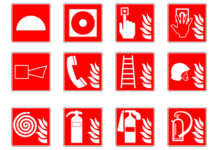
When you’re in the market for a new home, there are a lot of factors to consider for your mortgage. One of the main factors to consider for any home loan is the interest rate. An interest rate is a cost of borrowing money. It is typically quoted as an annual percentage rate (APR), the amount of interest charged on loan, expressed as a percentage of the loan amount.
The interest rate usually varies from lender to lender. However, the national average for mortgage rates can give you a ballpark estimate of what to expect and help you budget for your mortgage. So, what are the current interest rates? Today, we’ll explore mortgage rates and the current average so you can better plan for your next home purchase.
What are the current mortgage rates?
Mortgage rates are currently rising as the average APR for a 30-year fixed-rate mortgage rose to 5.22%. This is the highest it has been in over seven years. Mortgage rates are predicted to rise even more this year, so now may be the time to do it if you’re thinking of buying a home.
Of course, you should compare rates among lenders to find the best mortgage rate for you. A lot of factors go into the interest rate you’re offered. The current average mortgage rate will play a role, but several other factors go into your mortgage rate quote.
What factors affect your mortgage rate?
Some of the factors that affect your interest rate include your credit score, the size of your down payment, the mortgage term, and the type of mortgage you select.
- Your credit score is one of the most important factors in getting a low mortgage rate. The better your credit score, the lower your interest rate will be. This is because a lender is taking on more risk when lending to someone with a lower credit score, and they will want compensation for that risk with a higher interest rate.
- Your down payment is another crucial factor. The more money you put down, the lower the interest rate. This is because you’re taking on less risk for the lender, and they don’t have to worry as much about you defaulting on the loan.
- The term of the mortgage is also something to consider. The longer the mortgage term, the higher the interest rate will be. When you’re committing to paying interest for a longer period of time, the lender is taking on more risk that you won’t be able to pay off the loan.
- The type of mortgage you select is also necessary when shopping around. The most popular types of mortgages are fixed-rate mortgages and adjustable-rate mortgages. Fixed-rate mortgages have a fixed interest rate for the life of the mortgage, which means your monthly payments will stay the same. Adjustable-rate mortgages have a variable interest rate, which means your monthly payments can change. The interest rate on an adjustable-rate mortgage is usually lower than the interest rate on a fixed-rate mortgage, but be aware that your monthly payments could go up if the interest rate rises.
So, what’s the bottom line? You receive a mortgage rate based on several factors, including the current average mortgage rate, so be aware of these factors to get the best mortgage rate for you.
Take action to find the best mortgage rate for your needs.
When it comes to finding the best interest rate, there are a few key things to consider.
It would be best to compare each loan’s interest rate and fees. Fees usually include application, origination, and closing costs. Furthermore, don’t just go with the first mortgage you find. Shop around to get the best interest rate and terms that fit your needs.
Getting pre-approved for a mortgage will also give you a better idea of how much you can afford and help you speed up the mortgage process once you find a home you want to buy. As we mentioned, your credit score is one of the most important factors lenders look at when approving a mortgage. Make sure you know your credit score and make any necessary corrections before applying for a mortgage.
By knowing the current interest rates and following these best practices, you’ll be able to find the best mortgage rate for your needs.








